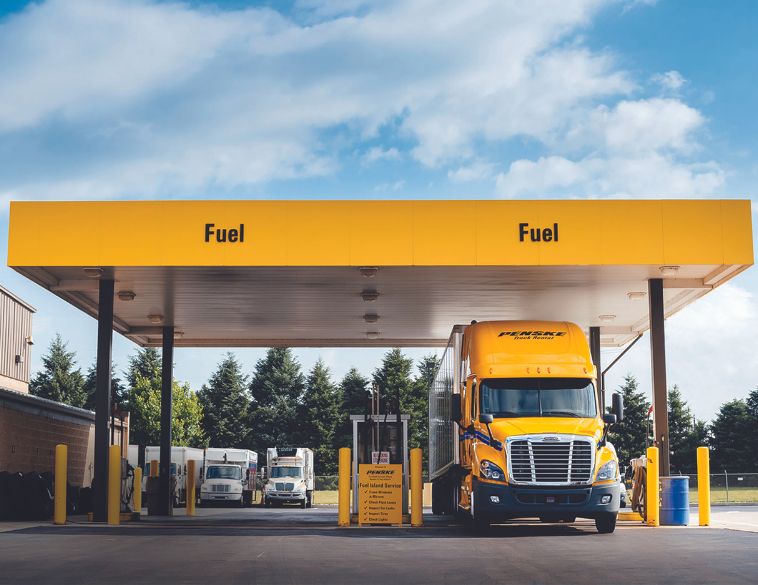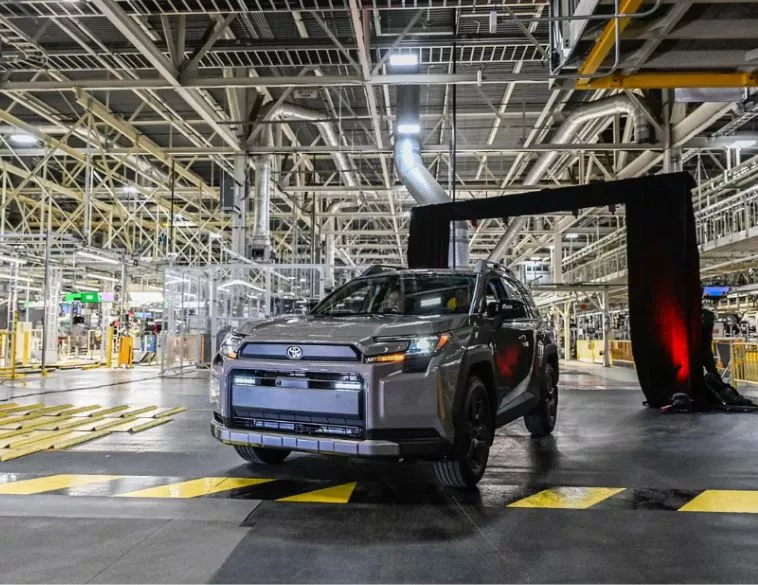Renewable Diesel: A Cleaner Burn

A viable alternative to regular diesel, renewable diesel still faces challenges.
According to the U.S. National Renewable Energy Laboratory (NREL), biodiesel is the most commonly used alternative fuel in medium- and heavy-duty diesel vehicles. However, biodiesel should not be confused with renewable diesel. While the two terms sound alike, and both biodiesel and renewable diesel can be used to fuel trucks, they are in fact very different fuels
The NREL explains the difference between the two fuels: "Renewable diesel is a conventional petroleum diesel substitute produced from renewable resources. Biodiesel is an oxygenated alternative fuel made from vegetable oils, waste cooking oil, or animal fats. Compared to conventional diesel, biodiesel (used in pure form or in blends such as B20) offers reduced particulate matter, carbon monoxide, and hydrocarbon emissions."
The U.S. Energy Information Administration (EIA) explains that biodiesel can be made from vegetable oils (mostly soybean oil), animal fats (mostly from meat processing plants), used cooking oil and grease from restaurants, and even algae.
Renewable diesel, according to the EIA, "can be produced from nearly any biomass feedstock, including those used for biodiesel production, through a variety of processes."
As the Canada Energy Regulator explains it: "Renewable diesel uses the same raw materials as biodiesel, but its production process and properties are different."
The big difference (and the big advantage for truck fleets) is the fact that "renewable diesel is a hydrocarbon that is chemically equivalent to petroleum diesel and can be used as a drop-in biofuel," according to the EIA. Furthermore, just like regular diesel, "it can be transported in petroleum pipelines, and sold at retail stations with or without blending with petroleum diesel."
In other words, because renewable diesel is chemically the same as petroleum diesel, it can be used in its pure form as a substitute for petroleum diesel. Biodiesel, on the other hand, is typically blended with petroleum diesel and sold as B5 (5% biodiesel), B20 (20% biodiesel), etc.
Although some truck manufacturers, particularly in Europe, are engineering vehicles that can run on pure biodiesel (B100), we're still far from B100 becoming the go-to fuel for North American trucks.
Bridging the gap
One of the fleets taking advantage of renewable diesel is Penske Truck Leasing. On their website, they make an interesting point about the advantages of renewable diesel:
"As a drop-in fuel that can be used in place of ultra-low-sulphur diesel (ULSD), renewable diesel is helping bridge the gap as the trucking industry moves toward zero-emission vehicles without extra equipment or infrastructure cost related to battery-electric vehicles."
Josh Tippin, Vice President Energy and Fuel Services for Penske Transportation Solutions, explains how Penske's renewable diesel program has grown since its inception two years ago.
"Penske Truck Leasing's renewable diesel program has grown tremendously since we first started it in 2022," he says. "Now, all our Penske Truck Leasing locations in California and Oregon are dispensing renewable diesel in either a 95/5 or 99/1 blend. We feel this product brings a great amount of value to our customers."
Tippin says that renewable diesel is not only good for the environment, but it can also be good for the bottom line. "Often, Penske is in a place of trying to give our customers both what they want and what they need," he explains. "Renewable diesel fits both of those when it relates to our customers wanting to be good stewards of the environment. They can also be cost conscious as subsidies make renewable diesel competitive with traditional ULSD, and using it requires no equipment changes while utilizing the existing fuel infrastructure."
Engine performance and maintenance
Beyond the environmental benefits of renewable diesel, according to engine manufacturer Cummins, renewable diesel offers several advantages for fleet operations.
"One key benefit is improved engine performance because of more efficient combustion," Cummins reports. "Renewable diesel has a higher cetane number than conventional diesel, meaning it combusts faster when the engine is started."
Another key benefit is a low sulphur content, which Cummins says, "helps prevent deposit buildup in engine exhaust after-treatment systems, promoting cleaner combustion that cuts down on maintenance and, therefore, overall operational costs."
Cummins notes that renewable diesel has high lubricity, "which reduces the friction in the engine's fuel pump and injectors. Smooth engine operations are ensured with higher lubricity, enhancing the engine's life and yielding a greater return on investment for customers throughout the vehicle's lifespan."
Tippin agrees. "The benefits range from lower maintenance costs, along with other visible benefits, like higher cetane for more power and low aromatics that make it better for drivers when fuelling," he adds. "Fleets have done their own studies that show a reduction in maintenance costs associated with diesel particulate filters and fewer regens."
Supply and demand issues
Today, Penske offers renewable diesel in all their California and Oregon locations. The only thing preventing Penske from expanding their offering is supply and cost. "We plan on expanding as the market becomes more competitively priced outside of those states," Tippin adds.
As Penske explains on their website, while renewable diesel is good for the environment, it's also costly: "Due to California's low carbon fuel standard (LCFS) credits, the cost is comparable to ULSD. Since renewable diesel currently has a more expensive feedstock than petroleum-based diesel products, Penske focuses on supplying renewable diesel to locations in states with LCFS programs. As the refining capacity expands, the product should be more readily available and the price more competitive."
Tippin offers the following advice to any fleet manager thinking of investing in renewable diesel. "Find a good source of renewable diesel from a company that has supplied renewable diesel for some time," he explains. "You want some experience in sourcing this product. Many providers are just getting into renewable diesel as it is more opportunistic for them, but they may fall short when supply gets tight. Contracting a reliable source of highly renewable diesel blended products is key. Additionally, some producers blend renewable diesel down for a financial benefit to them, not the end user, so make sure you get what you are asking for."
As the trucking industry works towards decarbonization, renewable diesel stands out as a viable solution, just as long as pricing and supply issues can be ironed out.




